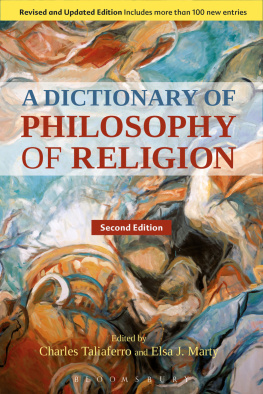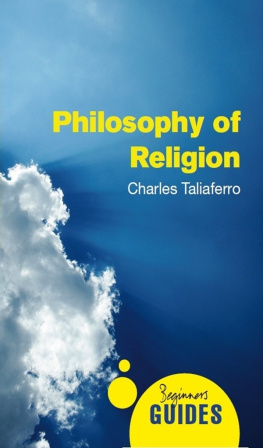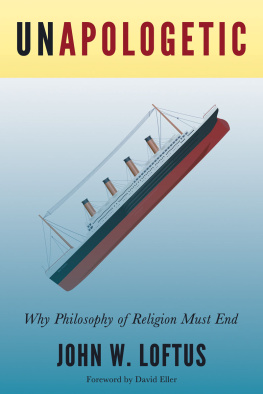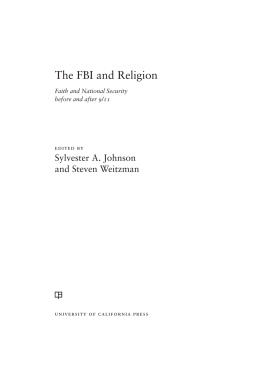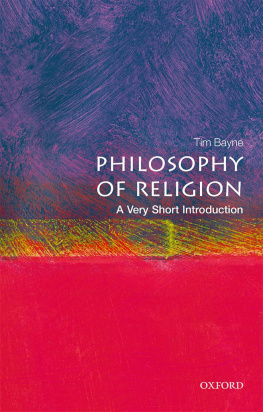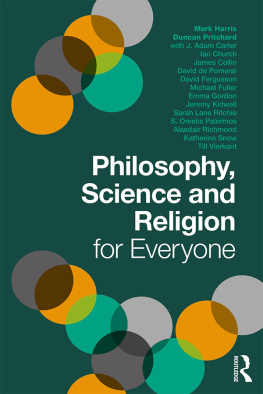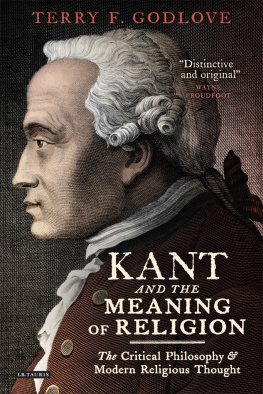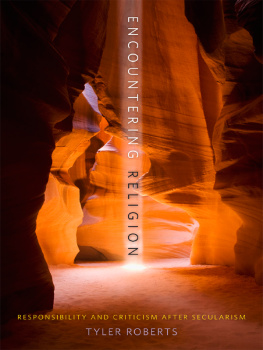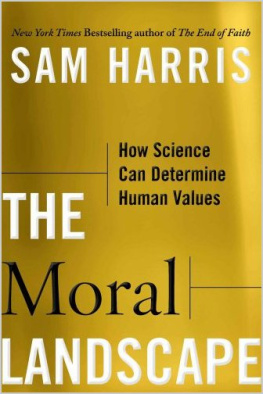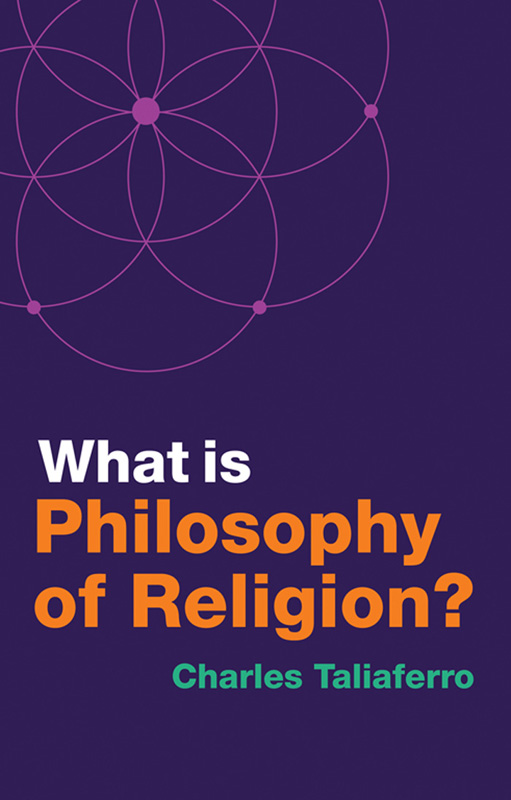Table of Contents
Guide
Pages
Polity's What is Philosophy? series
Sparkling introductions to the key topics in philosophy, written with zero jargon by leading philosophers.
What is Philosophy of Religion?
Charles Taliaferro
polity
Copyright Charles Taliaferro 2019
The right of Charles Taliaferro to be identified as Author of this Work has been asserted in accordance with the UK Copyright, Designs and Patents Act 1988.
First published in 2019 by Polity Press
Polity Press
65 Bridge Street
Cambridge CB2 1UR, UK
Polity Press
101 Station Landing
Suite 300
Medford, MA 02155, USA
All rights reserved. Except for the quotation of short passages for the purpose of criticism and review, no part of this publication may be reproduced, stored in a retrieval system or transmitted, in any form or by any means, electronic, mechanical, photocopying, recording or otherwise, without the prior permission of the publisher.
ISBN-13: 978-1-5095-2954-4
ISBN-13: 978-1-5095-2955-1(pb)
A catalogue record for this book is available from the British Library.
Typeset in 11 on 13pt Sabon by Toppan Best-set Premedia Limited
Printed and bound in Great Britain by CPI Group (UK) Ltd, Croydon
The publisher has used its best endeavours to ensure that the URLs for external websites referred to in this book are correct and active at the time of going to press. However, the publisher has no responsibility for the websites and can make no guarantee that a site will remain live or that the content is or will remain appropriate.
Every effort has been made to trace all copyright holders, but if any have been overlooked the publisher will be pleased to include any necessary credits in any subsequent reprint or edition.
For further information on Polity, visit our website: politybooks.com
Acknowledgments
I thank Pascal Porcheron for inviting me to write What is Philosophy of Religion? I am also very grateful for the excellent assistance of Ellen MacDonald-Kramer. I thank Glenn Gordon, Saint Andrew Lupton, and Emma Claire dePaulo Reid for epic help in editing and revising the manuscript. I also thank Fiona Ellis and an anonymous reviewer for their insightful, incisive recommendations.
I thank Itayli Marquette, Wael Awada, and especially Tim Crane for the final preparation of the manuscript.
This book is dedicated to the many students I have had the joy of working with in the course Philosophical Theology at St. Olaf College over twenty years (and continuing). Most recently these include Anders, Andrew, Benj, Carly (Cheryl), Elliot, Erica, Hannah Joy, Michael, Katherine, Jess, Bay, Diane, Rose, and Wael. This book is also dedicated, with great admiration, to the exemplary professor of philosophy of religion Mikael Stenmark of Uppsala University, Sweden, who recognizes and promotes the international, collaborative practice of philosophy of religion. He is especially admirable in his sensitivity in placing the critical engagement of religious and secular traditions in the context of authentic care for, and respect of, persons and positions. Without such evident respect, even well thought out, responsible analysis may well come across as callous, uninformed cultural confrontation.
This manuscript was completed in the company of the inspiring Jil Evans (American artist and writer extraordinaire), the Polichs of Dover Street, and Elizabeth and Ryan, true lovers of wisdom.
Introduction
Is there a God? If there is, what is the relationship between God and the cosmos? Can we experience or perceive God? Does it matter whether some religious vision of the divine or sacred is true or false? When it comes to religion, should we be less concerned with truth and falsehood, and more with matters of personal fulfillment and satisfaction? How important is it for religious faith to be based upon evidence? If it is important, what kind of evidence should it be based upon? Has contemporary science shown religious beliefs to be superstitious and false? Are our concepts of good and evil rooted in religious concepts of life? If there is an all-powerful, all-good God, why is there so much evil in the world? Is there a soul? When, if ever, might it be reasonable or wise to believe in divine revelation, miracles, an incarnation of the divine or life after death? Are different religions different paths to the same sacred reality? How should we evaluate disagreements over religious beliefs? For example, should your confidence in your beliefs about God be reduced because others, who seem equally as intelligent and sincere as you, do not share those beliefs?
These are only some of the questions that animate philosophy of religion. They involve virtually every area of philosophy, impacting our political and personal values, our perspective on reality, the nature and limits of what we can know about or hope for, and so on. Today, philosophy of religion is undertaken by philosophers coming from all the great religious and secular perspectives: some are deeply skeptical about the truth of religions; others are observant Jews, practicing Christians, Muslims, Hindus, Buddhists, Daoists, and practitioners of other religious traditions. There are even philosophers who propose new models and concepts of God that go beyond and challenge historical and contemporary religions.
Philosophical reflection on matters of religious significance is the oldest form of philosophy in both East and West. In Ancient Greece, Socrates and the Pre-Socratics (those philosophers who flourished prior to Socrates) were very much concerned with the nature of the divine and the authority of the will of God and/or the gods. In China, philosophers who practiced Confucianism and Daoism pondered tian (heaven) deeply. While tian and the Dao (the Way) are not the same as the concept of the divine in Ancient Greeceor in Judaism, Christianity, and Islamthey are conceived of as a way of life involving reverential awe, which many see as spiritual or central to religious life. Similarly, in ancient Indian philosophy we find deep spiritually engaging reflections on Brahman, the self, avatars (manifestations of the divine in this life), the Buddha's teaching on suffering and enlightenment, Nirvana, and more. The practice of philosophy of religion today shows itself to have value, in part, because of its long lineage in terms of the whole history of thought and culture.
Philosophical reflection on religion is also of immense contemporary significance due to the modern and historical role of religions in shaping societies and personal lives. Philosophy of religion engages with living practices and beliefs held by millions of people, rather than focusing on abstract topics that do not affect the lives of people today. One reason why many introduction to philosophy textbooks over the past fifty years have begun with philosophy of religion is to show readers how the study of philosophy can lead us to critically engage with pervasive human practices.
Philosophy of religion is also important in that it takes seriously deep questions about the meaning of our lives. Arguably, if one of the main teachings of Buddhism is true, then our pursuit of power, wealth, and pleasure, and our belief in a continuous individual egothat we are each substantial selves enduring over timeare actually in some sense an illusion. According to this view, a life of greedy self-aggrandizement turns out to be a life in the service of that which is not fundamentally real. What we think of as a fulfilling life is actually just our ongoing contribution to the wheel of rebirth (


